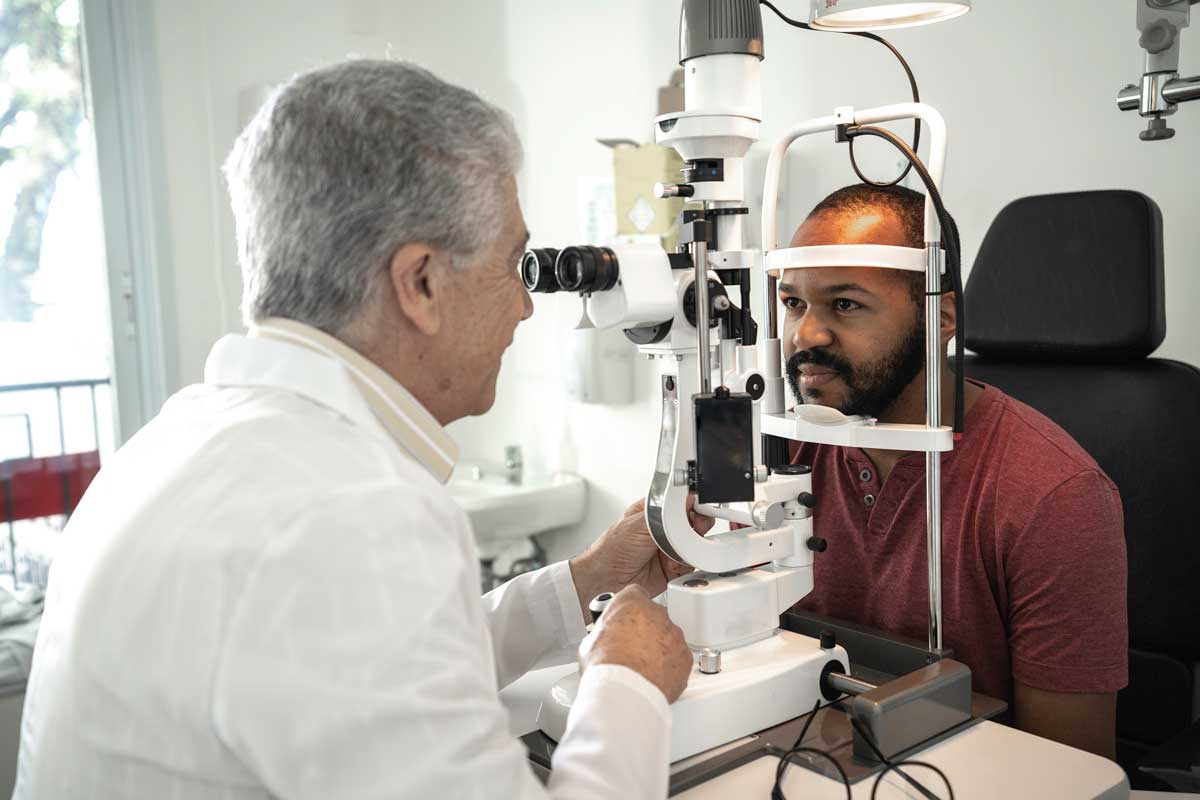 |
A glaucoma question prompt list provides an opportunity for patients to ask specific questions, which fosters opportunity for the provider to further patient education. Photo: Getty Images. |
Glaucoma disproportionately affects African Americans, with this group five times more likely than Caucasian individuals to develop the condition and six times more likely to go blind from it. So, it’s of the utmost importance that these patients are properly educated by their eye doctors, and also feel free to bring up questions about their risk and how to mitigate it. One new study explored the questions African Americans have about their condition and management.
The research, just published in Eye, aimed to describe what questions patients have by administering a pre-visit video/glaucoma question prompt list as a form of intervention with hope to increase the patients’ question-asking during medical visits. African American patients were included who had glaucoma and also possessed a history of non-adherence of the condition’s medications.
A total of 93 patients were randomly assigned to the intervention group from glaucoma practices in North Carolina and Maryland. The office visits were audio-recorded, transcribed and coded for question that patients asked. The pre-visit question prompt list was collected and compared for the questions checked against questions verbally asked.
Participants checked an average of 6.8 questions on the prompt list, but of those who checked at least one question, only 54.8% asked the provider at least one of their checked questions. Most commonly checked questions that were asked included “What time(s) of day should I take my drops?”, with 50.0% (nine out of 18) and “How many times a day do I use my glaucoma medicines?”, also at 50.0% (three out of six).
Although this study’s original question prompt list did improve patient question-asking comparative to regular care, the outcome doe show that frequently, patients’ questions about their glaucoma and/or medications are not asked, which could affect proper medication adherence and administration.
Certain questions pertaining to medication administration, like “What can I do if I am not sure I got the drop in my eye?” and “Can you show me how to use my eye drops?” went unasked often, prompting the study researchers to suggest that patients may benefit from providers more explicitly offering to demonstrate correct eyedrop administration techniques or verifying administration technique through asking the patient to show how they instill said drops.
Prior studies indicate that African American patients with glaucoma are less adherent to management than other races, while provider education pertaining to proper medication adherence was linked to better adherence of medications. As such, the authors suggest “possible interventions and areas for future research include encouraging providers to answer the questions checked on the prompt list without patients having to ask or to leave time at the end of the visit where patients are informed that they can ask their prompt list questions.”
Even further, they mention, “more can be done by providers to increase patient comfort with asking disease state and medication-related questions during their visits, especially in conjunction with prompt list interventions.”
Beznos B, Sayner R, Carpenter DM, et al. Do African American patients with glaucoma ask their eye providers the questions they have? Eye. July 31, 2023. [Epub ahead of print]. |

